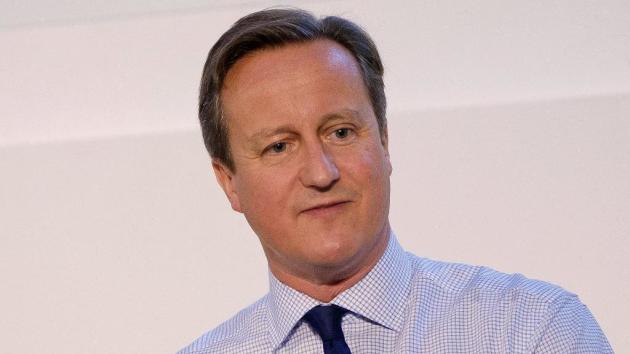European leaders have completed emergency talks on the migrant crisis - but immediately faced warnings that the "greatest tide" of refugees is yet to come.
Heads of state were locked in talks for more than five hours as they attempted to overcome bitter divisions to secure a unified response to the crisis.
Following the meeting, European Council president Donald Tusk said they had taken a step in the right direction, but warned the "greatest tide of migrants and refugees is yet to come" and said the policy of "open doors and windows" must be corrected.
Before the summit in Brussels, David Cameron committed an extra £115 million to tackle the emergency, which the Prime Minister announced as he arrived at the summit.
An extra £100 million will be given to help refugees displaced in camps in countries neighbouring war-ravaged Syria, taking the UK's contribution in the region to £1.1 billion.
In addition, the UK will provide £14.5 million towards aid in Europe, the Western Balkans and North Africa, including £2 million for agencies in Libya.
Mr Cameron called on leaders to adopt a "comprehensive approach" and called for more to be done in nations which have seen dramatic exoduses in an effort to stop the thousands entering Europe.
"We need to do more to stabilise the countries and regions from which these people are coming," he said.
EU leaders discussed the crisis over a three-course dinner in the Belgian capital.
More than five hours after the meeting started, Mr Tusk announced proposals for more than one billion euros would be mobilised to ease the crisis.
He said leaders agreed to give extra help to countries neighbouring Syria such as Jordan, Turkey andLebanon.
Mr Tusk said: "It is clear that the greatest tide of refugees and migrants is yet to come. Therefore we need to correct the policy of open doors and windows.
"Leaders also agreed that the current chaos at our external borders must end."
Mr Tusk added: "The measures we have agreed today will not end the crisis but they are all necessary steps in the right direction."
Earlier this week interior ministers agreed a controversial plan to relocate 120,000 refugees currently in Italy, Greece and Hungary among the member states.
The scheme provoked a furious row, with four former eastern bloc states - Slovakia, Romania, Hungary and the Czech Republic - voting against, while Finland abstained.
Britain exercised its right to opt out of the scheme.
Following the summit, European Commission president Jean-Claude Juncker said the meeting took place in a "better-than-expected atmosphere".
A statement issued after the meeting said the leaders "decided on a number of immediate priorities".
It added: "We all recognised that there are no easy solutions."
The statement called for "operational decisions" on a number of steps within weeks, including:
:: A response to the needs of refugees with additional funds of at least one billion euros;
:: Assistance for Lebanon, Jordan, Turkey and other countries affected by a mass exodus from Syria;
:: Help for Western Balkans nations in handling refugee flows;
:: Tackling the "dramatic" situation at Europe's external borders, with strengthened controls;
:: Help for countries on the front line to process and fingerprint migrants at so-called "hotspots".
The document concluded: "We urge institutions, agencies and member states to accelerate their work on all aspects of the migration crisis."

No comments:
Post a Comment